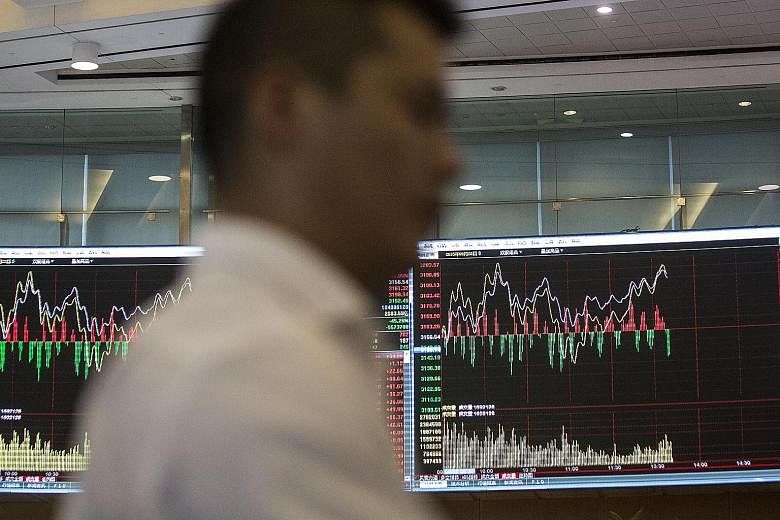Investors pulled US$40 billion (S$57 billion) out of emerging markets in the third quarter - the worst fund outflow since the global financial crisis, according to the Institute of International Finance (IIF).
Emerging markets have enjoyed a positive flow of funds in recent years - more cash being invested than taken out - but the gloss has long gone.
Concerns over China's accelerating slowdown, the worsening commodities slump and jitters over higher United States interest rates are unnerving fund managers, who are voting with their feet.
There was some respite a fortnight ago when cash starting coming back following the US Federal Reserve's decision to hold off on a rate hike but that blip of optimism vanished by last week.
Investors sold off about US$19 billion of equities and US$21 billion in debt during the quarter, said the IIF report on Tuesday.
This is the biggest negative quarterly flow since the fourth quarter of 2008, when investors sold US$105 billion of assets.
Emerging market shares fell out of favour in a big way during the three months to Sept 30.
Foreign funds unloaded US$5.1 billion of Indonesian, Thai and Philippine equities, according to Bloomberg data, as the currencies of the three countries weakened further against the greenback.
Singapore, now in the claws of a bear market, having fallen over 20 per cent from its year-high of 3,539.95 in April, has not been spared the fallout.
The total value of companies listed on the Singapore Exchange continued to slide, falling 2.8 per cent from Aug 31 to $829.8 billion by Sep 30 - the lowest since July 2012.
Total market capitalisation plunged 12.6 per cent from $948.9 billion as at Sept 30 last year.
The Straits Times Index lost 16 per cent or 540.25 points and $98.1 billion in market cap in the third quarter.
HSBC economist Joseph Incalcaterra said the commodity price slump is dampening domestic economic activity.
"Even tiny Singapore - which imports virtually everything it consumes, and the raw commodities to fuel its re-exports - has seen its manufacturing sector impacted by lower refining and petrochemical activity, as well as the potential longer-term impact to the offshore engineering sector, as new orders dwindle," he said.
DBS analyst Janice Chua said she sees "2,750 as a key support for the STI in the near term, with a strong possibility of undershooting to 2,650". Ms Chua cited Singapore's weak exports, further currency weakness, falling oil prices, the possibility of more disappointment in the coming earnings season, and the heightened risk of a technical recession following weak August industrial production data.
She added that the STI could sink to as low as 2,250 in a bear-case scenario, where an economic recession could bring about bankruptcies, unemployment and widespread property loan defaults.


